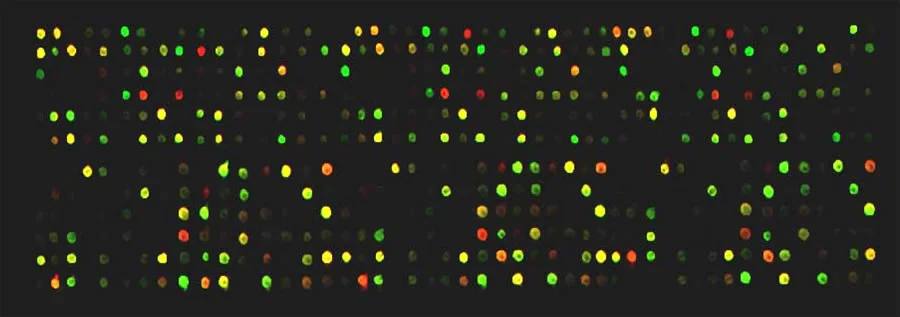Genetic Testing: analyzing an individual's genetic material to determine predisposition to a particular health condition or to confirm a diagnosis of a genetic disease. (HGPIA)
The use of a laboratory test to look for genetic "variations" associated with a "disease." The results of a genetic test can be used to confirm or rule out a suspected genetic disease or to determine the likelihood of a person passing on a "mutation" to their "offspring." Genetic testing may be performed prenatally or after birth. Ideally, a person who undergoes a genetic test will discuss the meaning of the test and its results with a genetic counselor. (NHGRI) Detection of a mutation, “genotype,” or specific “alleles” associated with genetic "traits," heritable diseases, or predisposition to a disease, or that may lead to the disease. Includes “prenatal” genetic testing. (MeSH)
Direct to Consumer Testing (DTC Testing): DNA-based tests for traits, susceptibilities, and genetic diseases. (Lewis, 394)
DNA Fingerprinting: a laboratory technique used to establish a link between biological evidence and a suspect in a criminal investigation. A DNA sample taken from a crime scene is compared with a DNA sample from a suspect. If the two DNA profiles are a match, then the evidence came from that suspect. Conversely, if the two DNA profiles do not match, then the evidence cannot have come from the suspect. DNA fingerprinting is also used to establish paternity. (NHGRI) In forensic medicine, the “DNA probes” used are “sequences” specific for “minisatellite” repeats. The DNA fingerprints are evaluated for similarities with DNA from an individual. (NCIt) Also referred to as ‘genetic fingerprinting.’
Genetic Screening: testing a group of people to identify individuals at high risk of having or passing on a specific genetic disorder. (HGPIA) The process of testing a population for a genetic disease in order to identify a subgroup of people that either have the disease or the potential to pass it on to their offspring. (NHGRI)
Genetic Testing Registry: provides information on genetic tests. Administered by the National Institutes of Health. (Lewis, 389)
Genotyping: testing that reveals the specific alleles inherited by an individual; particularly useful for situations in which more than one genotypic combination can produce the same clinical presentation, as in the “ABO blood group,” where both the AO and AA genotypes yield “type A blood.” (GeneReviews)
Karyotyping: major clinical tool. Displays chromosome pairs in size order. (Lewis, 237) A photographic representation of the chromosomes. Reveals how many chromosomes are found within an actively dividing cell. (Brooker, 306) A ‘photomicrograph’ of an individual's chromosomes arranged in a standard format showing the number, size, and shape of each chromosome type; used in low-resolution physical mapping to correlate “chromosomal abnormalities” with the characteristics of specific diseases. (HGPIA) Used to look for abnormal numbers or structures of chromosomes. (NHGRI) Examines chromosomes in a sample of cells, which... helps identify genetic problems as the cause of a disorder or disease. Can count the number of chromosomes and look for structural changes in chromosomes. The test can be performed on almost any "tissue," including "amniotic fluid," "blood," "bone marrow" and tissue from the “placenta.” (PubMedHealth) From different populations, can reveal effects of environmental toxins. Can (help) clarify evolutionary relationships. (Lewis, 238) Noun - ‘karyotype.’
Spectral Karyotype (SKY): a karyotype in which the “homologous” pairs of chromosomes are manipulated in such a way that they have distinctive colors. The SKY technique makes it easier for scientists to detect chromosomal abnormalities, as compared with a conventional karyotype. (NHGRI)
